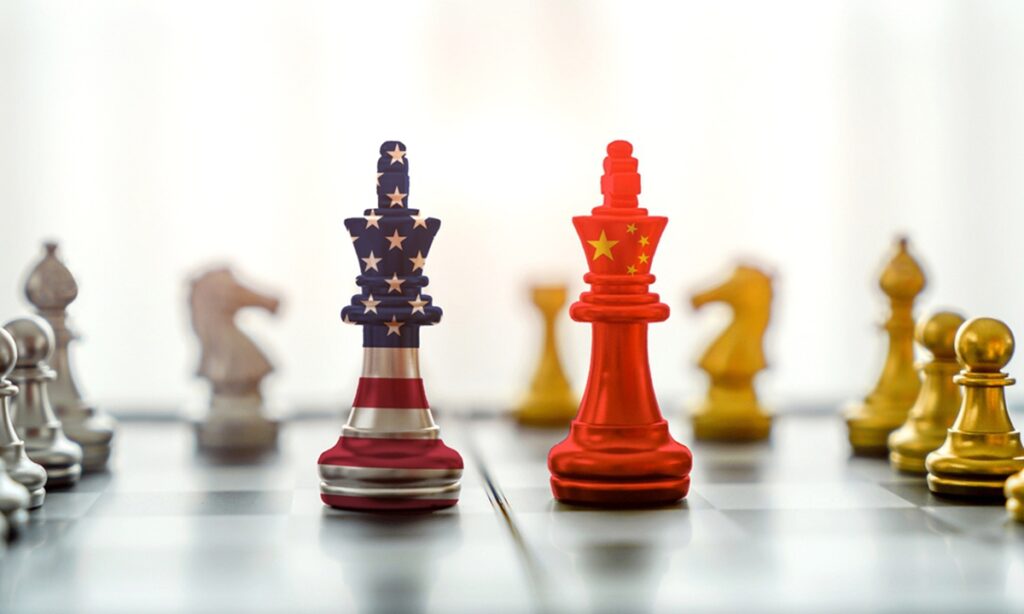As Mexico is emerging as a popular destination for Chinese electric vehicle (EV) manufacturers to invest in, the question of whether the US will hinder this trend is gaining attention from industry insiders.
The US has expressed concerns to Mexico about an upcoming influx of Chinese investment, as three of China’s largest EV makers are in talks to find sites for plants in the Latin American country, the Financial Times reported on Monday, citing people with knowledge of the matter.
When the US expresses concern, it usually doesn’t bode well, given previous cases. Considering the recent news about US-Mexico cooperation on investment security screening, it is clear that the risk is rising that Chinese EV makers will face new geopolitical challenges in investing in Mexico. Last week, the US and Mexico agreed to cooperate on stronger screening of investments to reduce national security risks, according to Reuters.
While US Treasury Secretary Janet Yellen insisted that the moves were not motivated by concerns about China, the efforts aimed at helping Mexico develop a screening body similar to the Committee on Foreign Investment in the United States (CFIUS) could easily lead to a worrying association, as the CFIUS’ increased scrutiny has sharply reduced Chinese investment in the US.
It is no secret that in the past, the US and its allies suppressed China’s semiconductor supply chain and 5G application on so-called national security grounds. Now, with the US trying to bolster its own electric car industry, vigilance is needed to determine whether the US concerns will lead to a new crackdown on the Chinese EV sector on similar grounds. In particular, it requires close attention to whether the US will demand supply chain cooperation from Mexico to curb Chinese investment in the Latin American country. Any attempt to intervene in Chinese investment through pressuring Mexico will cause damage to the international trade and investment order.
US concerns over Chinese investment in Mexico could serve as a reminder that Chinese companies need to be prepared for possible geopolitical risks. Nevertheless, even with worries over more suppression from the US, there is no reason for Chinese companies to stop investing in Mexico. China’s EV sector has faced fierce domestic competition to obtain industry advantages. If these companies halted expansion every time they encountered a problem, they would not have been able to develop to today’s scale. China is the world’s largest market and producer of EVs. Figures from Canalys show that global sales of EVs grew 49 percent to 6.2 million units in the first half of 2023, with China accounting for 55 percent of total sales.
Moreover, the price and technological competitiveness of China’s EV industry also present an opportunity for Mexico to upgrade and develop its own industry chain. The manufacturing upgrade brought by Chinese investment and supply chains will be irreplaceable for any Latin American country over a relatively long period.
Admittedly, much of China’s recent investment interest in Mexico is due to Mexico’s role in Washington’s construction of the so-called nearshoring industry chain. It is critical for China to consolidate and develop economic and trade relations with countries like Mexico that are increasingly important in the US supply chain restructuring.
However, that doesn’t mean China and Mexico cannot use investment opportunities to enhance and develop their overall economic and trade cooperation. The development of the China-Mexico comprehensive strategic partnership over the past decade has proven that practical cooperation and strengthened economic relations are in the interests of both countries.
Both countries have been working to balance their trade by supporting Mexico’s exports to China and creating favorable conditions to attract Chinese investors. Since both sides need the mutually beneficial trade and investment relationship, they cannot allow the bilateral economic relations to be disrupted by third powers with ulterior motives.
(Global Times)




